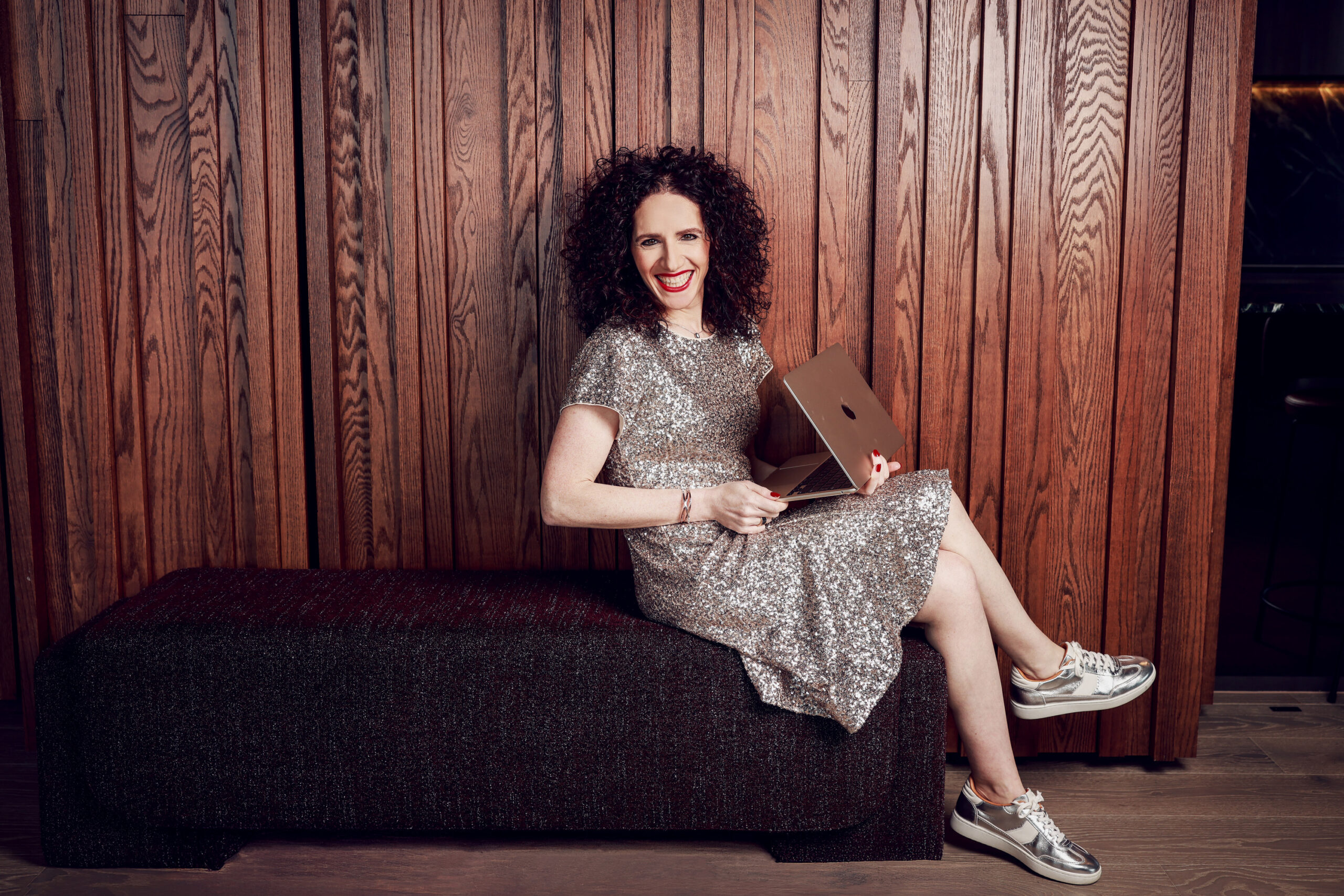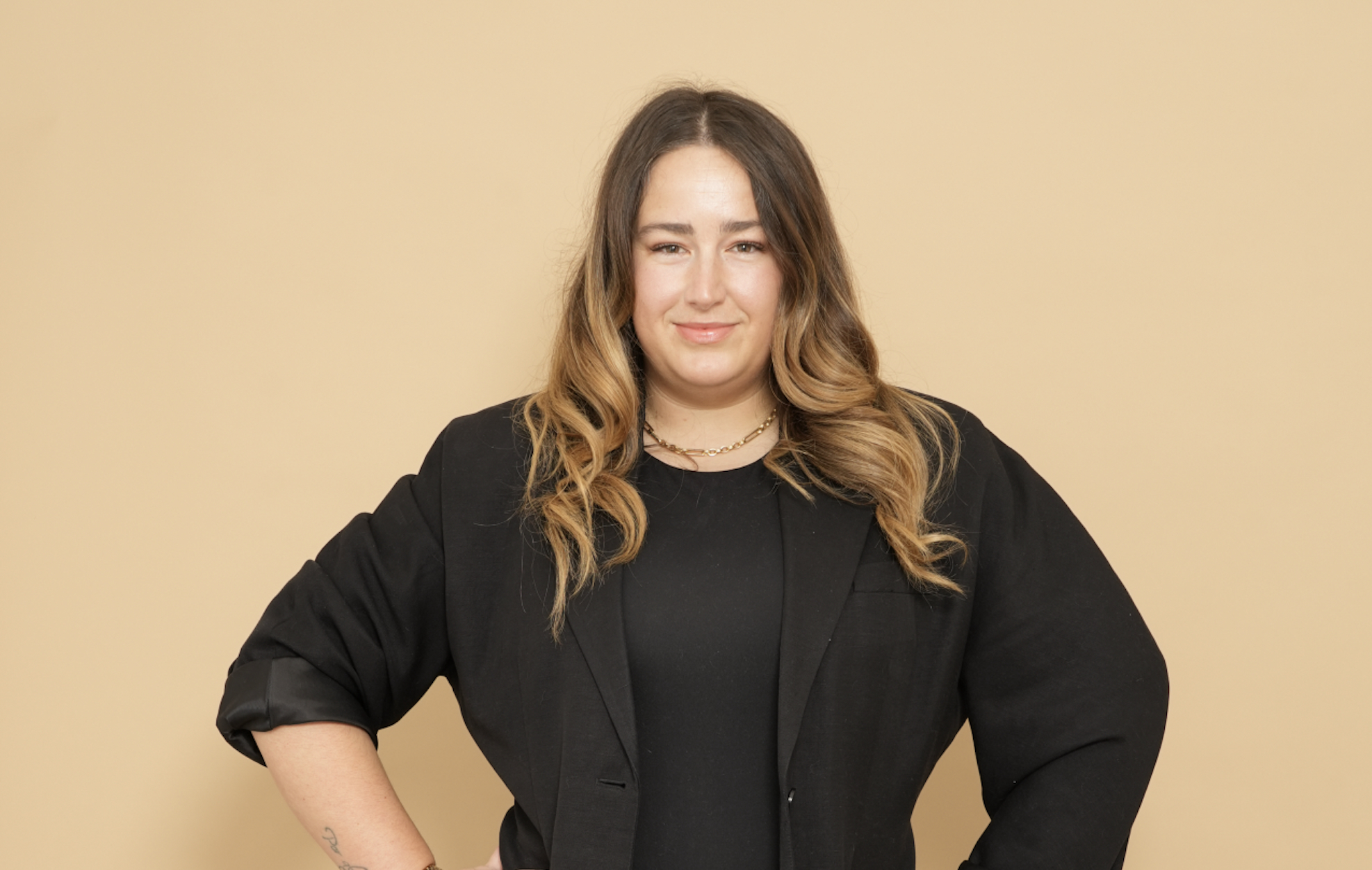
If you are looking for a good recommendation for your Valentine’s Day book list, look no further than the forthcoming ‘The Soulmate Strategy: My Imperfect Plan to Conquer Heartbreak and Find True Love‘ by Corey Seemiller (February 10, 2026, She Writes Press). Described as the perfect blend of heartbreak and hope, this LGBTQ memoir is perfect for those who believe in the law of attraction, who don’t believe in the “happily ever after” myth, and who know that following your heart can lead to happiness.
Days after Corey’s breakup, a photo of her ex wrapped in the arms of another woman goes viral on Facebook. Confronted with this gleeful boast about “happily ever after,” Corey, a forty-something-year-old lesbian, decides that she can’t live in a state of perpetual loneliness, plagued with the burden of her own failure in finding happiness and love.
Armed with her meticulously crafted checklist, Corey embarks on a mission to heal, move on, and find “the one.” But no matter how many items she checks off her list, or how faithfully she follows the sage wisdom of psychics, her breakup coach, and the legendary rapper Eminem, her hope in finding her one true love begins to fade away—until she’s suddenly torn between two.
Now, with her heart unexpectedly on the line, Corey must find out what she really wants—and where her true happiness lies.
In anticipation of its February 2026 release, we are excited to share an excerpt from ‘The Soulmate Strategy’ below.
Tangled
Why can’t you just get divorced?” I pleaded with my dad. “All you do is yell at each other.”
We were out walking our dog, Soxy, like we did every night. My dad pulled on the leash, and we all came to a stop.
“It’s not that simple,” he said brusquely.
I stared at him, waiting for more of a response. But he just stared back—words unspoken but message clear. Even at eight years old, I understood what his look meant. Divorce would be too much. He wasn’t willing to upend all our lives, including his own. So, he would put up with the arguments and the absent love because the certainty of mediocrity if he stayed was far more comforting than only a possibility of happiness if he left.
My shoulders dropped. I knew there was no point in pressing further. We continued around the block, and not another word was said about it—that day or any day.
Six years passed, and the constant fights and cheating on my dad’s part finally pushed my mom to the brink and my dad out of the house. Their divorce was messy—years of lawyers and custody struggles. After that, I swore my future marriage would be different.
“I’m gonna marry her,” I told my mom.
In my entire twenty-eight years of life, I had never said that about anyone. After having crossed paths at the university some time back, serendipity, or rather, a mutual friend, reconnected us five years later. Before we knew it, we had made plans to travel from our respective sides of the country to meet up at Zion National Park. I nicknamed her “Zion” because of that trip.
“Don’t get ahead of yourself. You’ve only been back for a day,” Mom cautioned me.
But I did get ahead of myself. Two months after the trip, Zion’s stuff arrived at my tiny apartment in Tucson—and before long, we had a mortgage, joint bank accounts, a commitment ceremony, and later on, a daughter Zion gave birth to with the help of an anonymous sperm donor.
Once our little girl was in the picture, it was easier to divert our attention to raising her rather than acknowledge that our relationship had been on a slow downward spiral over the nearly twelve years we had been together. While there wasn’t cheating or incessant arguing like with my parents, the love between us had simply faded. Autopilot, it turns out, is no way to make a relationship thrive.
One night, when our daughter was four-and-a-half, Zion called me into the kitchen. When I found her sitting at the table with a serious look on her face, a terrible heaviness landed in my stomach.
“Our relationship isn’t good,” she said. “And you know it.”
My eyes filled with tears.
“We’re gonna move out,” she said in a definitive, rehearsed kind of way.
“What?” The heaviness grew even heavier.
“I’m taking the kiddo,” she said matter-of-factly. “We’ll work out a schedule so you can see her.”
She got up from the table and headed to the bedroom, where she began pulling clothes out of the dresser and stacking them on the bed.
Within minutes, Zion and Kiddo were packed up and gone.
Tears streamed down my cheeks as I stood alone in our quiet house. No bedtime story to read to my daughter and no hand to hold when falling asleep—a ritual Zion and I had kept alive until the very last night we slept next to each other . . . more out of habit than affection.
Over the next few days, I kept pleading with the universe for Zion to burst through the front door, bags in hand, and say she wanted to come home. She was supposed to be my person, and we were supposed to figure this out. But she never did, and we never did.
And that ended up being a good thing.
Our unlove for each other was from detachment—simply growing apart. While our situation felt different from my parents’ unlove, which was born from continuous conflict, I eventually came to learn that unlove is unlove, no matter how it comes about.
My dad was right, though, in saying “It’s not that simple.”
Zion and I trying to untangle our lives made it easy to see the allure of staying no matter how bad things get. After we finalized the last detail of our separation, I vowed to never tangle lives with anyone again.
But the universe didn’t listen to my request. Five months after the breakup, I met someone—Runner, an easy nickname given her hobby of running. I was attracted to her from the get-go—boundless enthusiasm combined with a feminine appeal that wasn’t overly girlie. She was the epitome of my type.
“She’ll be coming over after her half-marathon today,” I told my mom on our daily call. I could feel myself grinning ear to ear.
“I just cut up orange slices for her.”
“Well, that’s sweet,” Mom said cheerfully. “I want all the details.”
I put the phone on speaker and started rinsing the knife and cutting board. “You’ll be the first to know!”
Runner and I spent nearly every minute together those first few months. She would take me to fancy restaurants, surprise me with my favorite coffee, shower me with gifts, and bring toys for my daughter. She paid the kind of attention to me that I had been craving for more than a decade. I fell for her quickly, and so did Kiddo.
With both of us enamored, right around the six-month mark, I asked her to move in. I was giddy with excitement the day she unpacked her clothes, placing each item neatly into her dresser in what was now our bedroom.
Our day-to-day continued to be magical. We talked, laughed, and shared affection—such an unfamiliar state of affairs coming out of my relationship with Zion. I loved being in love. I loved living together. But I wasn’t interested in marriage.
“I just can’t end up like my parents,” I told her early on, “legally trapped in a relationship that’s run its course—”
“But I’m not your parents,” she said.
“—and then my failed relationship with Zion when I did try
to do things differently.”
“I’m not Zion either.”
I knew how insulting it sounded to assume we would eventually grow to loathe each other and that I basically wanted an escape hatch for when it happened.
“I know. But I just can’t see myself getting all tangled up again, at least legally. That doesn’t mean I don’t love you or want to be with you.”
“If that’s true, then I don’t understand why you wouldn’t want to marry me.”
“It’s not that simple,” I said. “Let’s just enjoy what we have.”
And for the next six years, we did.
“I love this,” I said to Runner as we unpacked boxes. “I can’t wait to hang it up.”
I pulled out a framed print of the US with three hearts inside, one situated in each of the states we had lived in—Arizona where we met, Ohio where we lived until I got tenure, and then California where we had followed Kiddo after Zion relocated. Now, we had decided to hunker down back in Arizona to weather out COVID.
I looked at the print again. “Home is where the heart is,” I read from the caption.
She smiled.
And I thought we both believed it . . . until the package arrived.


















